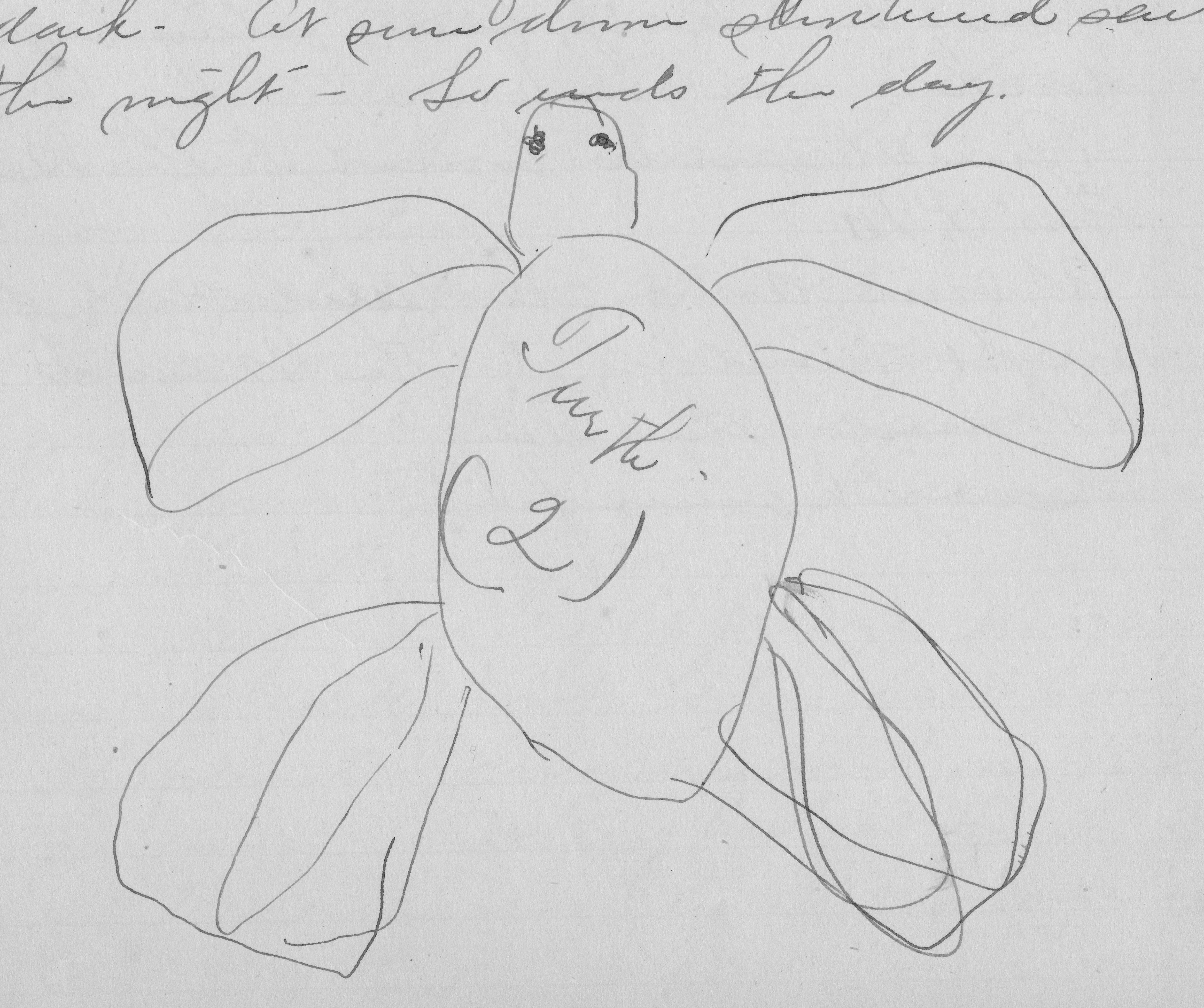One Saturday in March of 1864, a man aboard the whale ship John P. West wrote in his journal, “My Pidgeon layed 4 eggs.” He also documented the day that his dog fell overboard (Logbook #027). Nine years earlier Asenath Taber, daughter of a whaler, noted the “beautiful little chicken” her family had on board their ship (Logbook #002). For these and other people at sea, animals could provide food, serve as companions, and bestow a sense of comfort during what were often years-long journeys abroad.
The life of a whaler was often one of extremes – some days were exciting, with several whales encountered and caught, while others were long and lonely, with nothing on the horizon and feelings of listlessness and homesickness setting in. Sightings of whales and other animals receive frequent note in many of the journals, with log keepers recording a variety of wild encounters, including sperm whales, right whales, turtles, porpoises, Portugese man o’ war, an array of birds and fish, and – as the log keeper aboard the Courser states rather ominously in his entry from October 6, 1860 – “Monsters of the Deep” (Logbook #300).
As fascinating as the variety of sea life seems to have been for many of the whalers and their crew, knowledge of the creatures’ presence could also instill fear. When disaster broke out on board the Spartan, Andrew Sprague feared not only the fire but also the possibility of becoming prey for the sharks that lurked beneath the water:
September 14, 1803 – “We have this day escaped one of the greatest misfortunes in life […] that of being burnt to Death, or to avoid that we might have thrown over board […] and committed ourselves to the Waves, either of which was a dismal prospect, for in the last instance we should soon have starved and become Food for Sharks. Our being so near eternity was occasioned by the boiling over of some Turpentine, which a Boy was heating in the Caboose House, it took fire, and immediately the whole House was enveloped in Flames, for about fifteen minutes it raged violently, and we could not determine whether we should eat our Supper or board the Ship, or go without floating on the Ocean, our good Genius prevailed and we Stop’d it by throwing the House overboard – With little or no damage to the Ship – When the danger was over, and we had time to reflect, it appeared almost like a dream. I could hardly believe it possible, that I had probably been so near my end. The horror of our Situation was beyond imagination frightful, the very foundation we stood upon appeared to be burning under our feet and no one near to relieve us, I would not again undergo my feelings at that moment for all the wealth of the Indies – It will however prove a useful lesson to all on board, and make them take Care how they heat any thing of the kind at Sea again –” (Logbook #083)
Sickness, harsh weather, loss of supplies, and loss of life were ever-present threats to whalers and their crew, but log keepers seem to have been equally conscious of the simultaneous awe and danger that went hand-in-hand with animal encounters.

(These and a multitude of other whaling journals are part of the vast logbook collection at The Mariners’ Museum Library.)
